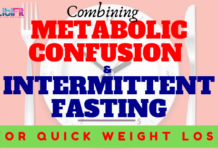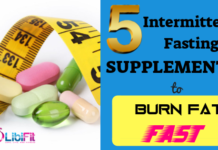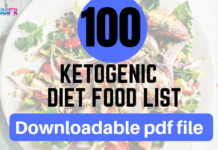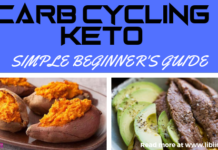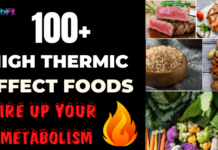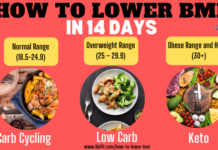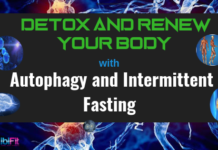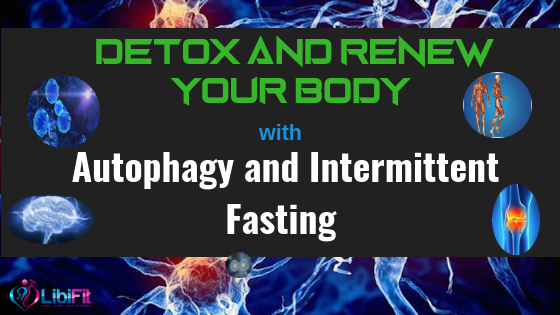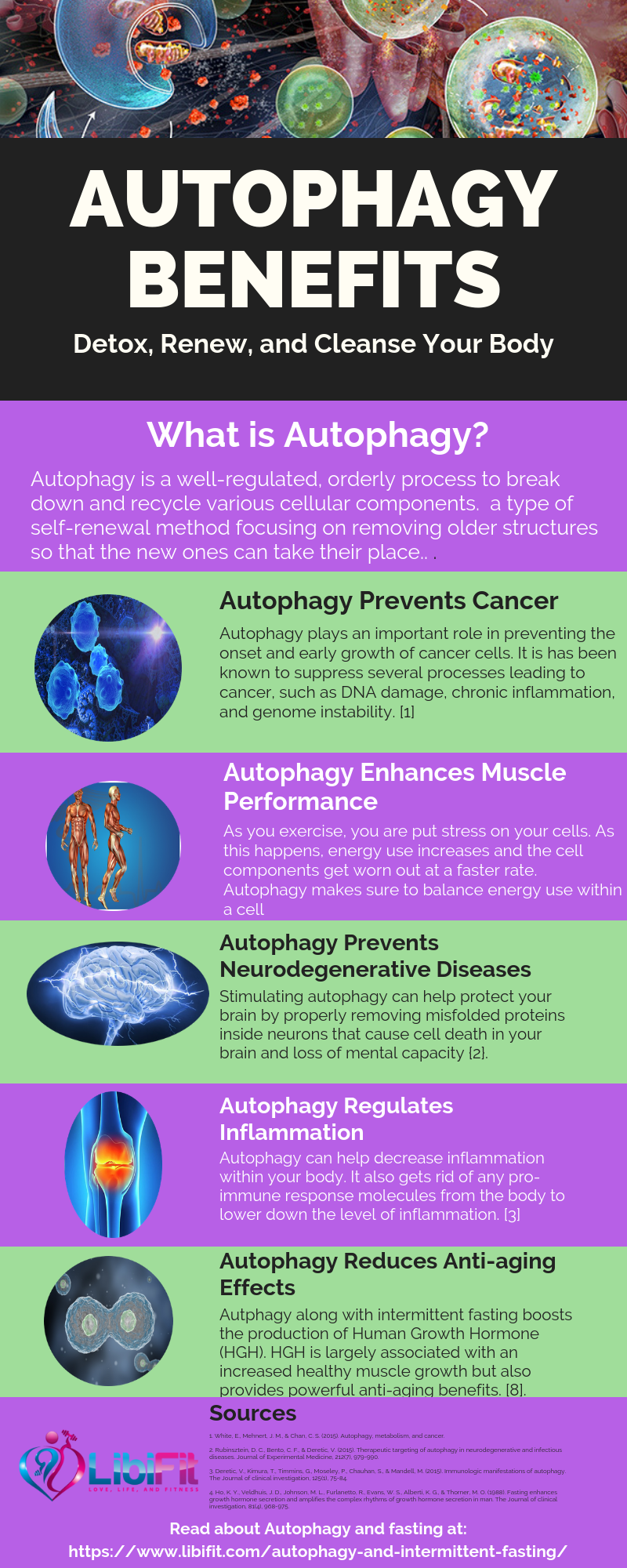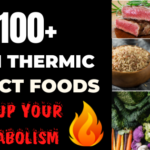Are you struggling to detoxify your body naturally? Is a detox diet or a juice cleanse not working out for you? No need to worry. There is a proven process to help cleanse and detox your body. It involves autophagy and intermittent fasting and it helps to rid your body of harmful toxins, ignite weight loss, and renew your body.
Autophagy and intermittent fasting work side by side to initiate detoxification inside your body. In fact, autophagy can be rightfully called as the “secret sauce” of intermittent fasting because it promotes longevity and anti-aging by helping the body among many other benefits.
.
What is Autophagy?
The word “autophagy” is the combination of two Greek words: auto meaning “self” and phagein meaning “to eat.” So the literal meaning of autophagy is “to eat oneself.”
Essentially, autophagy is your body’s mechanism of getting rid of every worn out, old cellular machinery when they are no longer in a working state. This includes the destruction of various components like proteins, organelles, and cell membranes.
In simpler words, autophagy is a well-regulated, orderly process to break down and recycle various cellular components.
The discovery of autophagy dates back to the 1960s, however, it’s fundamental importance was recognized by Yoshinori Ohsumi in the 1990s. The Japanese scientist was later awarded a Nobel Prize in 2016 for his important discoveries regarding the mechanisms of autophagy.
The Science Behind Autophagy
There are billions of cells working inside your body to regulate various functions. Over the time, the cellular machinery gets damaged and is no longer in a condition to carry out its duties. This is when your body automatically triggers self-destruction through a process called autophagy.
When you trigger autophagy, you are allowing the organelles of the healthy cells to look for diseased or dead cells and eat them. As soon as a damaged cell is spotted, the healthy cells produce a double membrane around it to form an autophagosome.
Once the autophagosome is formed, the sick cell or the toxic protein trapped inside begins to dissolve. In this way, your body uses the healthy cells to get rid of any harmful substance leading to a natural detoxification.
The process of autophagy is actually a garbage disposal occurring at a cellular level. It takes the dysfunctional parts and obliterates them so that they do not cause issues anywhere else in the body. It is also a type of self-renewal method focusing on removing older structures so that the new ones can take their place.
Autophagy Benefits
The health benefits of autophagy and intermittent fasting are enormous. Apart from detoxifying your body, it can also help you achieve the following:
- Autophagy Prevents Cancer
Autophagy plays an important role in preventing the onset and early growth of cancer cells. It is has been known to suppress several processes leading to cancer, such as DNA damage, chronic inflammation, and genome instability. [1]
A study conducted on rodents suggests that genetically impairing the process of autophagy in mice increases the progression of cancer cells. [2]
- Autophagy Enhances Muscle Performance
As you exercise, you are putting stress on your cells. As this happens, the energy use increases and the cell components get worn out at a faster rate. In such circumstances, autophagy can help improve the overall performance.
During exercise, the process of autophagy makes sure to balance the energy use within a cell. It reduces the total amount of external energy required by your body. Moreover, it also ensures that the degraded components of the body are removed before they cause any problems. [3]
- Autophagy Prevents Neurodegenerative Diseases
Many neurodegenerative diseases arise from the accumulation of misfolded proteins inside neurons. This causes cell death in your brain and a subsequent loss of mental capabilities. [4]
Stimulating autophagy can help protect your brain by properly removing these proteins. For example, it helps prevent Alzheimer’s disease by removing amyloid accumulated inside the brain cells. [5]
- Autophagy Regulates Inflammation
Autophagy can help decrease inflammation within your body. It helps clear the antigenic cells responsible for triggering an immune response. Moreover, autophagy also gets rid of any pro-immune response molecules from the body to lower down the level of inflammation. [6]
How Intermittent Fasting Induces Autophagy
Perhaps the most fascinating part of autophagy is that this process can be enhanced by cellular stress. If the cells are damaged or lack nutrients and energy, a stress response mechanism is stimulated leading to autophagy.
As far as the diet and lifestyle habits are concerned, what promotes autophagy the most is intermittent fasting. It does so by imposing stress on your body cells in the form of nutrient deprivation.
When you don’t eat, your insulin levels go down whereas the levels of glucagon hormone rise. An increase in circulating glucagon is what stimulates autophagy.
Fasting is known to provide the greatest known boost to the process of autophagy by raising glucose level. While doing so, it is also believed to improve your insulin sensitivity.
How long should you fast for autophagy?
Studies suggest that fasting for 24 hours to as high as 48 hours have the strongest effects. [7] However, this may not be doable for most of the people.
It is better to select a 16-hour fasting window, followed by an eating period of 8 hours. For example, if you have had dinner by 8 pm, you must fast till 12 pm the next day.
There are no hard and fast rules about when to start your 8-hour eating period. You may start at 8 am and stop at 4 pm, or begin at 2 pm and continue till 10 pm. Do whatever seems best for you and your schedule.
Autophagy Specific Benefits for Women
Autophagy and intermittent fasting may be particularly beneficial for females. Some of these benefits include the prevention of ovarian cancer and anti-aging effects.
Anti-aging Effects
One of the most surprising benefits of fasting is that it boosts the production of Human Growth Hormone (HGH). HGH is largely associated with an increased healthy muscle growth but also provides powerful anti-aging benefits. [8]
Activation of autophagy via calorie restriction is also said to counteract the age-related accumulation of damaged cells. By doing so, it can also enhance the metabolic efficiency of body cells and slow down the aging process. [9]
Autophagy is actually the response to stress that helps cell gain resilience and conserve their energy. It also helps get rid of dysfunctional mitochondria which may otherwise produce reactive oxygen species (ROS). ROS are often associated with the signs of aging and their removal helps prolong life. [10]
Prevention of Ovarian Cancer
Autophagy and intermittent fasting have strong ties with the prevention of ovarian cancer. A recent study has proven that intermittent fasting can slow down the progression of ovarian cancer by boosting your immune responses and inducing cell death inside the cancerous tumors.
Furthermore, it can also improve the efficacy of radiotherapy and chemotherapy associated with ovarian cancer. [11]
Precautions Concerning Autophagy and Fasting
There is still a lot to learn about autophagy and intermittent fasting. It is generally safe to include fasting at regular intervals to get the most of autophagy.
However, if you are using certain medications for any health problem, it is better to consult a doctor before starting it. People suffering from diabetes or hypoglycemia must be particularly cautious about it.
Women who are breastfeeding or pregnant must not fast at any cost. Anyone under treatment for a disease like cancer must first discuss all the treatment options with their doctors.
If you want to begin fasting, you can ease into it with a less aggressive approach called crescendo fasting. Read about it via the link below.
Easily Begin Intermittent Fasting with Crescendo Fasting
References
- White, E., Mehnert, J. M., & Chan, C. S. (2015). Autophagy, metabolism, and cancer.
- Amaravadi, R., & Debnath, J. (2014). Mouse models address key concerns regarding autophagy inhibition in cancer therapy. Cancer discovery, 4(8), 873-875.
- He, C., Bassik, M. C., Moresi, V., Sun, K., Wei, Y., Zou, Z., … & Korsmeyer, S. (2012). Exercise-induced BCL2-regulated autophagy is required for muscle glucose homeostasis. Nature, 481(7382), 511.
- Rubinsztein, D. C., Bento, C. F., & Deretic, V. (2015). Therapeutic targeting of autophagy in neurodegenerative and infectious diseases. Journal of Experimental Medicine, 212(7), 979-990.
- Menzies, F. M., Fleming, A., Caricasole, A., Bento, C. F., Andrews, S. P., Ashkenazi, A., … & Licitra, F. (2017). Autophagy and neurodegeneration: pathogenic mechanisms and therapeutic opportunities. Neuron, 93(5), 1015-1034.
- Deretic, V., Kimura, T., Timmins, G., Moseley, P., Chauhan, S., & Mandell, M. (2015). Immunologic manifestations of autophagy. The Journal of clinical investigation, 125(1), 75-84.
- Alirezaei, M., Kemball, C. C., Flynn, C. T., Wood, M. R., Whitton, J. L., & Kiosses, W. B. (2010). Short-term fasting induces profound neuronal autophagy. Autophagy, 6(6), 702-710.
- Ho, K. Y., Veldhuis, J. D., Johnson, M. L., Furlanetto, R., Evans, W. S., Alberti, K. G., & Thorner, M. O. (1988). Fasting enhances growth hormone secretion and amplifies the complex rhythms of growth hormone secretion in man. The Journal of clinical investigation, 81(4), 968-975.
- Madeo, F., Zimmermann, A., Maiuri, M. C., & Kroemer, G. (2015). Essential role for autophagy in life span extension. The Journal of clinical investigation, 125(1), 85-93.
- Testa, G., Biasi, F., Poli, G., & Chiarpotto, E. (2014). Calorie restriction and dietary restriction mimetics: a strategy for improving healthy aging and longevity. Current pharmaceutical design, 20(18), 2950-2977.
- Pagotto, A., Pilotto, G., Mazzoldi, E. L., Nicoletto, M. O., Frezzini, S., Pastò, A., & Amadori, A. (2017). Autophagy inhibition reduces chemoresistance and tumorigenic potential of human ovarian cancer stem cells. Cell death & disease, 8(7), e2943.








